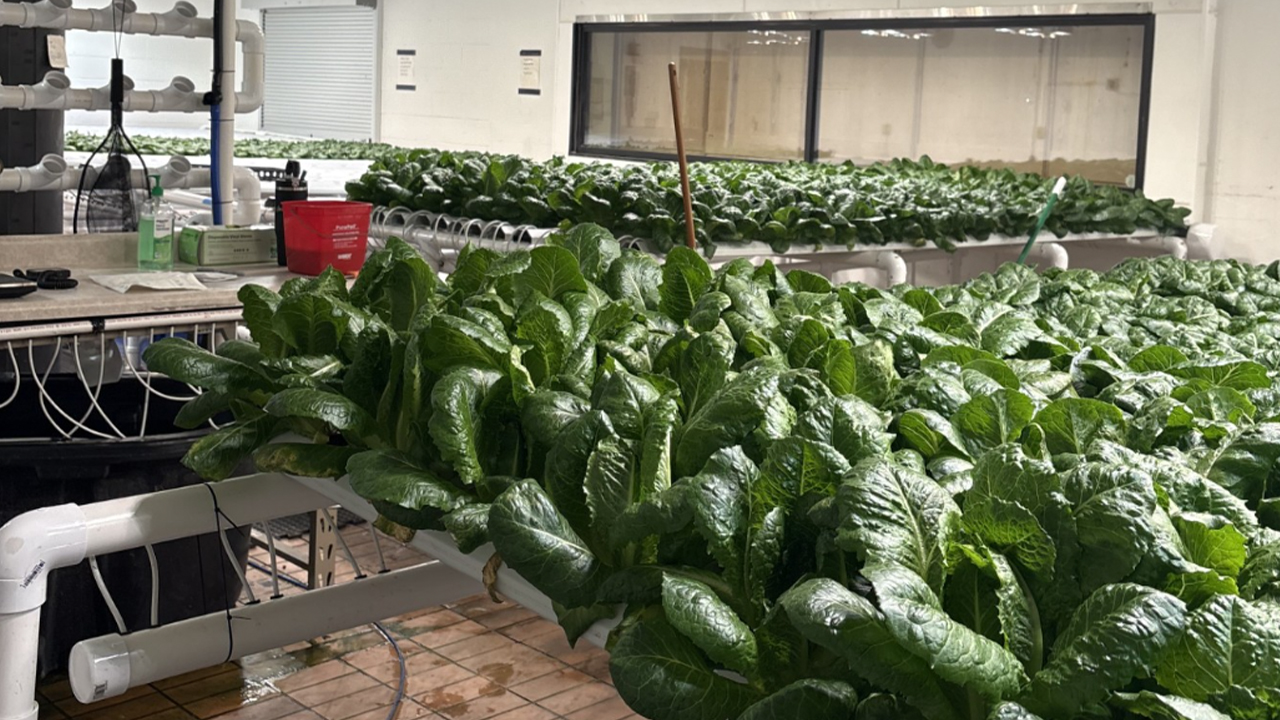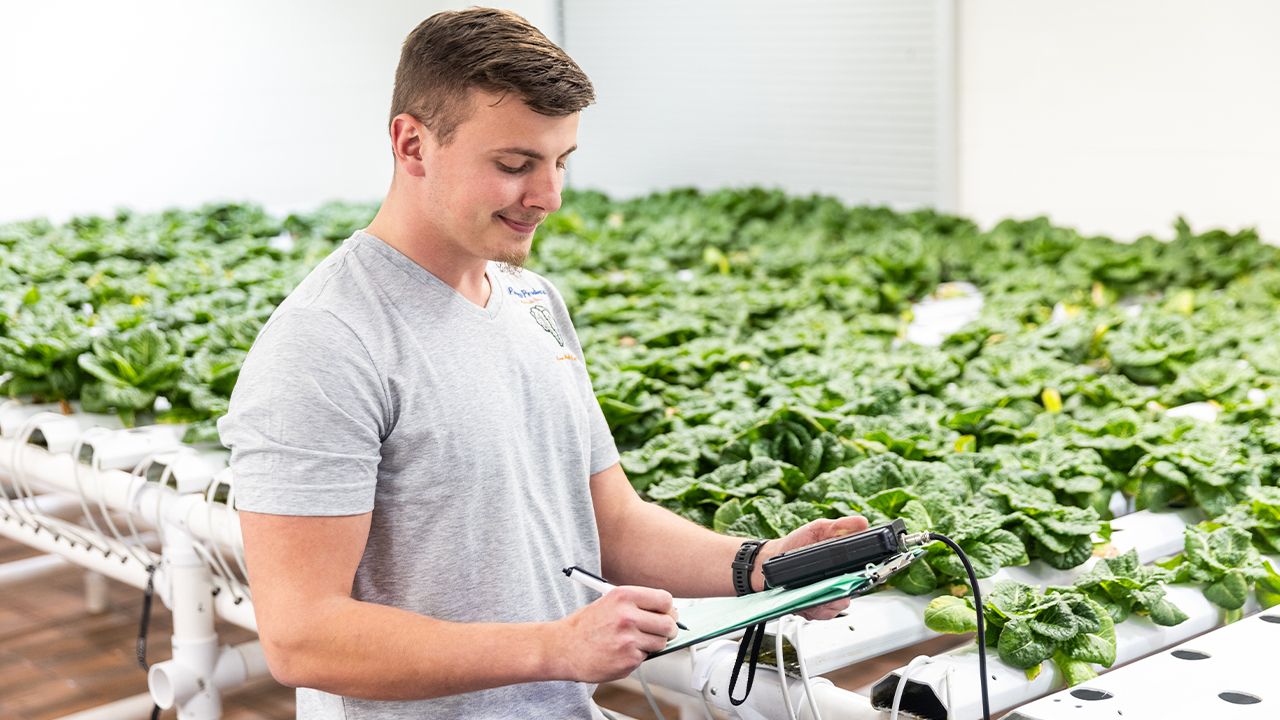


As Thanksgiving approaches, students in the University of Wisconsin-Platteville Hydroponics Lab are preparing a harvest that is as educational as it is flavorful. Pioneer Produce, the student-run business based within the campus lab, offered fresh Romaine lettuce for purchase ahead of Thanksgiving. The initiative allows students real experience in consumer-direct sales, sustainable agriculture and local food distribution while giving the campus community a crisp and healthy holiday ingredient.
“Pioneer Produce is excited to share our fresh, student-grown hydroponic lettuce just in time for Thanksgiving,” said Rich Crow, assistant professor in the School of Agriculture. “Grown right here on campus in UW-Platteville’s Hydroponics Lab, our produce brings local flavor and hands-on learning to your holiday table. We are blending sustainability, innovation and hands-on education into every leaf.”
The Hydroponics Lab, located in Glenview Commons, opened in 2019 and serves as a living classroom for students who want to explore new approaches to sustainable food production.
"The benefits of locally grown hydroponic lettuce cannot be denied; it's fresher, tastes better and has a higher nutritional value than lettuce grown 2,000 miles south of here," said Mike Ernst, director of Auxiliary Services at UW-Platteville. "Professor Crow and his team of students are doing extraordinary work, providing a fantastic product for our students, campus and community while the students learn to run a business."
The lab is both a research environment and a functioning operation where students manage everything from crop care to business planning. Pioneer Produce builds on that hands-on spirit by giving students a chance to practice customer engagement and critical problem solving in a real marketplace.
For many students, the lab also represents a chance to explore what agriculture can look like beyond traditional fields. Kassandra Clint, majoring in soil and crop science and environmental horticulture with an emphasis on plant breeding and genetics, appreciates the variety of learning experiences the space provides. Clint says by introducing students to hydroponics, the lab demonstrates that food production doesn’t have to rely on large carbon footprints associated with fuel and long-distance transportation.
“It offers a valuable educational experience, showing students that agriculture is not limited to one way of growing food,” remarked Clint. “As the Hydroponics Lab student manager, our goal is to share this with others. Our team has been looking for new ways to diversify our reach on campus, and we’re excited to branch out further with our Thanksgiving offering.”
This semester, she is leading a research project that will adapt part of the lab into an aquaponics system that integrates fish and plants into a single, complementary ecosystem. The fish supply nutrients for the plants while the plants help filter the water for the fish. Clint designed, built and will be testing the system, adding another innovative dimension to the lab’s work.
“I’m trialing aquaponics in the lab because it could improve the efficiency of our current setup," explained Clint. "We have several 115-gallon tanks that currently hold only water and grow algae. If we can adapt them for aquaponics, we could reduce fertilizer costs while also producing an additional crop for the campus.”
For buyers, a head of crisp Romaine may be the highlight of a salad or sandwich. For the students who grew it, each leaf represents experimentation, teamwork and applied learning. With every harvest, they are gaining skills that will carry into the future of agriculture and food systems.
*This year’s Thanksgiving lettuce sale has concluded following a highly successful response from the campus community, with staff reporting five times more requests than last year.